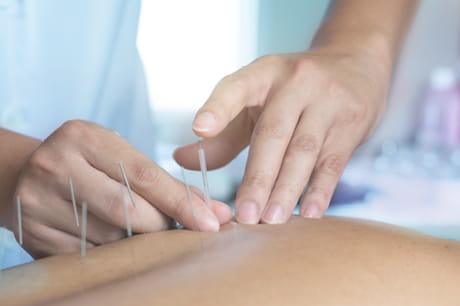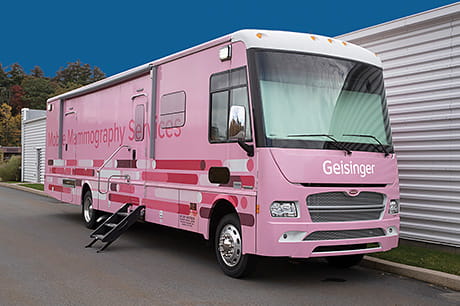Acupuncture: Can it help relieve pain?
Learn how this traditional Chinese medicine technique works.
Acupuncture has been practiced in China for thousands of years. It’s based on the belief that your body contains points that are connected by pathways called meridians which carry a flow of vital energy called qi (pronounced “chee”) throughout the body. If a point becomes blocked, the energy flow is disrupted. Inserting thin metal acupuncture needles into the points allows the qi to flow freely again — improving overall health and wellness.
It might seem odd that having needles put into your skin could reduce pain. Many Western practitioners believe acupuncture boosts your body’s natural painkillers by stimulating the central nervous system, which releases chemicals into the muscles, spinal cord and brain.
Before your acupuncture treatment begins
Each person who practices acupuncture has their own unique style and may combine aspects of Eastern and Western approaches to medicine.
Before getting out the needles, your practitioner may ask you questions about your symptoms and lifestyle. They may also examine:
- The parts of your body where you’re feeling pain
- The shape, color and coating of your tongue
- The color of your face
- The strength, rhythm and quality of the pulse in your wrist
Their observations will help them determine the most beneficial approach for you.
How acupuncture works — and what to expect during treatment
A typical acupuncture treatment lasts less than an hour and uses five to 20 flexible, slender needles. They’re placed at various depths and locations throughout your body — in fact, some may be placed far from the spot where you’re feeling pain. Most people feel only a slight twinge when the needles are inserted.
Your practitioner may move the needles gently once they’re in place. They may apply heat or electrical pulses for added stimulation.
The acupuncture needles remain in place while you relax and remain as still as possible. Most practitioners will leave you with a call button to press if you need assistance.
When the needles are removed, you’ll probably feel nothing. Some people find acupuncture treatments to be relaxing. Others feel energized by the procedure. Many find some relief from their pain.
What are the benefits of acupuncture?
Studies by the National Institutes of Health have shown that acupuncture is an effective treatment alone or in combination with conventional therapies to treat a variety of issues, including:
- Nausea caused by surgical anesthesia and cancer chemotherapy
- Dental pain after surgery
- Addiction
- Headaches
- Menstrual cramps
- Tennis elbow
- Fibromyalgia
- Myofascial pain
- Osteoarthritis
- Low back pain
- Carpal tunnel syndrome
- Asthma
How to choose an acupuncturist
Not all states require acupuncturists to have a license to practice, so it’s a good idea to discuss acupuncture with your doctor. They may be able to recommend someone who is licensed or certified. Some doctors, like Geisinger anesthesiologist Qingzhong Hao, MD, PhD, are also certified acupuncture practitioners.
Dr. Hao advises sharing any medical information with the practitioner you choose to perform your acupuncture treatments. Important things to mention include having a pacemaker, being at risk for infection, having chronic skin problems, being pregnant or having breast or other implants. “Also discuss any medical treatments you’re undergoing at the time and any medications you’re taking — prescription, over-the-counter and dietary supplements, too,” he says.
Don’t forget to consider costs and insurance coverage before starting treatment. Ask about the number of treatments you’ll need, as well as the cost. Some insurance plans will cover acupuncture, and some will not. Finding out beforehand will help you avoid any surprises.
Next steps:
Learn how Geisinger makes better health easier
Get care now
Meet Qingzhong Hao, MD





